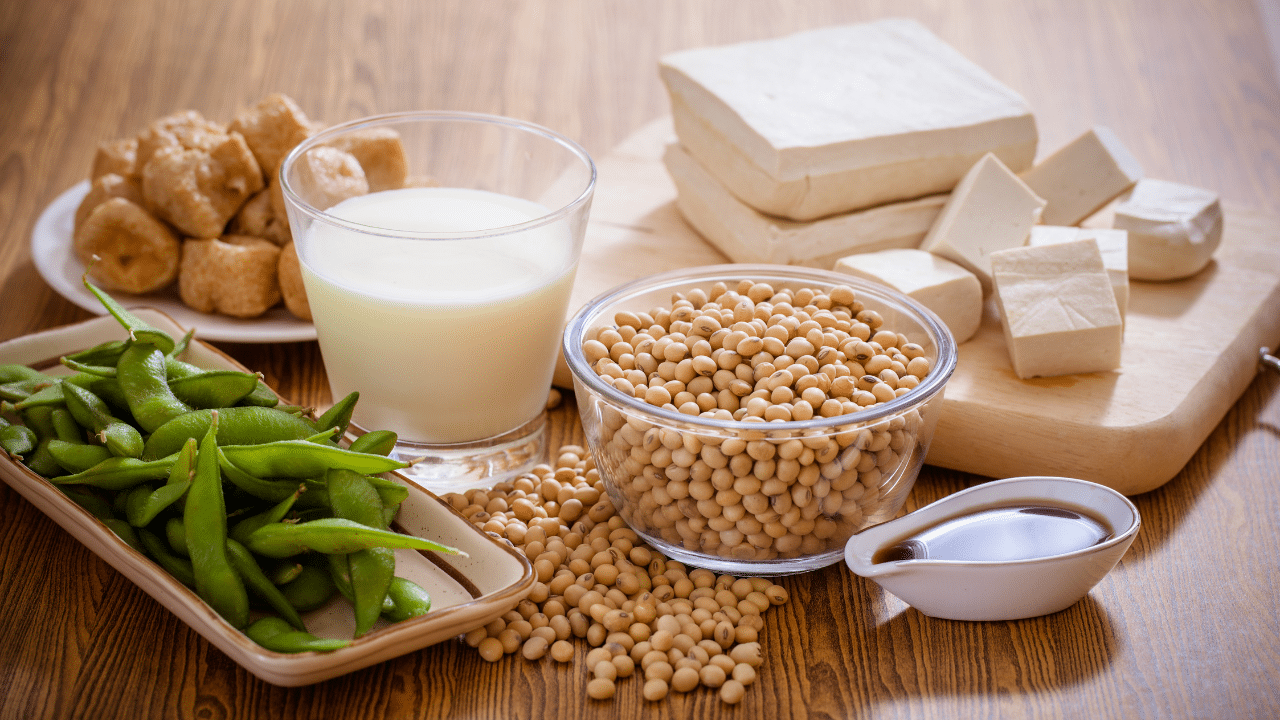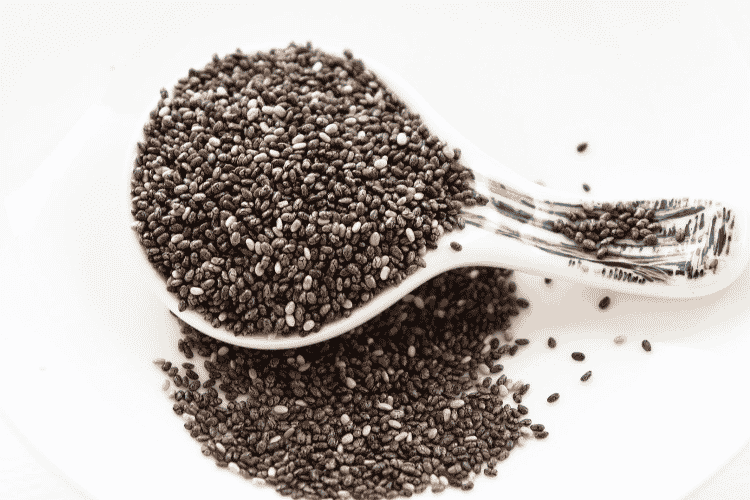
20 Reasons To Eat 3 Bananas A Day – And No They Won’t Make You Fat
Table of Contents
- Can I Eat 3 Bananas A Day and Attain Weight Loss?
- Prevents Cardiovascular Events
- Bananas Help Boost Bone Mass
- Depression
- PMS
- Anemia
- Blood Pressure
- Brain Power
- Constipation
- Hangovers
- Heartburn
- Morning Sickness
- Mosquito bites
- Nerves
- Ulcers
- Temperature control
- Seasonal Affective Disorder (SAD)
- Smoking
- Stress
- Warts
- SuperFood
- As Effective As Gatordate
- Bananas Won’t Make You Fat
- Eat Them While They Are Still Non-GMO
- If You Eat 3 Bananas Per Day or 4 Bananas a Day For A Month, What Happens To Your Body?
- Are Bananas Fattening?
Can I Eat 3 Bananas A Day and Attain Weight Loss?
Many people want to know, “Is it okay to eat 3 bananas in one day?” From preventing cardiovascular events to regulating PMS, bone mass, constipation, heartburn, and more than a dozen other ailments, bananas pack enough of a nutritional punch to make most medications look like candy. Bananas also give an instant, sustained, and substantial boost of energy. They are the number one fruit for the world’s leading athletes for a reason.
Research has proven that three small bananas per day will provide enough energy for a strenuous 90-minute workout. But energy isn’t the only way a banana can help us keep fit and healthy. It can also help overcome or prevent a substantial number of illnesses and conditions, making it a necessary staple in our daily diets.
The magic number which appears to assist in the following conditions is 1500mg of potassium which is 3 bananas per day.
In this article, we’ll provide you with 20 Reasons To Eat 3 Bananas per day, and for anyone who’s wondering, “No it won’t make you fat!” Then you can decide if you can eat 3 bananas in one day and attain weight loss or if 3 bananas a day is too much.
Prevents Cardiovascular Events
British and Italian researchers have found that having one banana for breakfast, one for lunch and one in the evening would provide enough potassium to reduce the chances of suffering a blood clot on the brain by around 21 percent. The study has been published in the Journal of the American College of Cardiology.
Scientists analyzed data from eleven different studies – dating back to the mid-Sixties – and pooled the results to get an overall outcome. They found a daily potassium intake of around 1,600 mg was enough to lower stroke risk by more than a fifth.
The average banana contains around 500 milligrams of potassium, which helps to lower blood pressure and controls the balance of fluids in the body.
Previous research in “The New England Journal of Medicine,” found that eating bananas as part of a regular diet can cut the risk of death by strokes by as much as 40%!
Bananas Help Boost Bone Mass
The potassium in bananas appears to counteract the bad effects of high-salt diets by preventing bones from decaying at a fast rate, says study author Dr. Deborah Sellmeyer, an assistant adjunct professor of endocrinology and metabolism at the University of California at San Francisco.
The potassium appeared to protect the bones of the women who took it, Sellmeyer says. They lost less calcium than they did on the low-salt diets, and the amount of lost protein was only slightly higher.
Depression
According to a recent survey undertaken by MIND amongst people suffering from depression, many felt much better after eating a banana. This is because bananas contain tryptophan, a type of protein that the body converts into serotonin, known to make you relax, improve your mood, and generally make you feel happier.
PMS
Forget the pills – eat a banana. The vitamin B6 it contains regulates blood glucose levels, which can affect your mood.
Anemia
High in iron, bananas can stimulate the production of hemoglobin in the blood and so helps in cases of anemia.
Blood Pressure
This unique tropical fruit is extremely high in potassium yet low in salt, making it perfect to beat blood pressure. So much so, the US Food and Drug Administration has just allowed the banana industry to make official claims for the fruit’s ability to reduce the risk of blood pressure and stroke
Brain Power
200 students at a Twickenham (Middlesex) school were helped through their exams this year by eating bananas at breakfast, break, and lunch in a bid to boost their brainpower. Research has shown that the potassium-packed fruit can assist learning by making pupils more alert.
Constipation
High in fiber, including bananas in the diet can help restore normal bowel action, helping to overcome the problem without resorting to laxatives.
Hangovers
One of the quickest ways of curing a hangover is to make a banana smoothie, sweetened with honey. The banana calms the stomach and, with the help of the honey, builds up depleted blood sugar levels.
Heartburn
Bananas have a natural antacid effect on the body, so if you suffer from heartburn, try eating a banana for soothing relief.
Morning Sickness
Snacking on bananas between meals helps to keep blood sugar levels up and avoid morning sickness.
Mosquito bites
Before reaching for the insect bite cream, try rubbing the affected area with the inside of a banana skin. Many people find it amazingly successful at reducing swelling and irritation.
Nerves
Bananas are high in B vitamins that help calm the nervous system.
Ulcers
The banana is used as the dietary food against intestinal disorders because of its soft texture and smoothness. It is the only raw fruit that can be eaten without distress in chronicler cases. It also neutralizes over-acidity and reduces irritation by coating the lining of the stomach.
Temperature control
Many other cultures see bananas as a “cooling” fruit that can lower both the physical and emotional temperature of expectant mothers. In Thailand, for example, pregnant women eat bananas to ensure their baby is born at a cool temperature.
Seasonal Affective Disorder (SAD)
Bananas can help SAD sufferers because they contain the natural mood enhancer tryptophan.
Smoking
Bananas can also help people trying to give up smoking. The B6, B12 they contain, as well as the potassium and magnesium found in them, help the body recover from the effects of nicotine withdrawal.
Stress
Potassium is a vital mineral, which helps normalize the heartbeat, sends oxygen to the brain, and regulates your body’s water balance. When we are stressed, our metabolic rate rises, thereby reducing our potassium levels. These can be rebalanced with the help of a high-potassium banana snack.
Warts
Those keen on natural alternatives swear that if you want to kill off a wart, take a piece of banana skin and place it on the wart, with the yellow side out. Carefully hold the skin in place with a plaster or surgical tape!
SuperFood
It is loaded with essential vitamins and minerals such as potassium, calcium, manganese, magnesium, iron, folate, niacin, riboflavin, and B6. These all contribute to the proper functioning of the body and keeping you healthy. The high content of potassium in bananas makes it a super fruit.
As Effective As Gatordate
A recent US study has also found that bananas were at least as effective as PepsiCo sports drink Gatorade in providing nutritional support to trained cyclists during prolonged and intensive exercise.
Bananas Won’t Make You Fat
Why is it that bananas have earned such a bad reputation in the weight loss department? Can someone who is interested in weight loss eat 3 bananas a day?
There are approximately 108 calories and 17.5 grams of carbohydrates in the average banana. Much of the calories from bananas come from carbohydrates, both from simple sugars and starch. They contain about 19 grams of sugar per banana and 1 gram of protein, as well. Bananas don’t contain any fat, cholesterol, or sodium. The fiber content of bananas also helps to control hunger much better for those who are trying to lose fat.
Bananas can be an ideal pre-gym snack. In order to fuel energy, our body uses carbs and fats. Thus, this makes bananas an essential carb food, if taken before a workout. And as it is densely packed with nutrients and energy, it is an ideal snack for the fitness enthusiast. The natural sugars contained within the banana help provide a lot of energy before a workout. This is the reason why it is a huge favorite for serious athletes.
As with any food, healthy or unhealthy, portion control is the true answer to avoiding weight gain. Therefore, if you consume bananas within your body’s food and calorie requirements, then bananas will not make you gain weight.
Eat Them While They Are Still Non-GMO
The UN Food and Agriculture Organization (FAO) has warned that wild banana species are rapidly going extinct as Indian forests are destroyed, while many traditional farmers’ varieties are also disappearing. It could take a global effort to save the bananas’ gene pool.
Virtually all bananas traded internationally are of a single variety, the Cavendish, the genetic roots of which lie in India. Three years ago, New Scientist revealed that the world Cavendish crop was threatened by pandemics of diseases such as that caused by the black Sigatoka fungus. Scientists are now hopping on the GMO bandwagon and claiming that the hope for the survival of the Cavendish lies in developing new genetically modified species as well as hybrids that are resistant to the fungus.
If You Eat 3 Bananas Per Day or 4 Bananas a Day For A Month, What Happens To Your Body?
As with any other fruit, the nutrient content of bananas changes as they ripen. In this case, as a banana ripens and turns dark yellow, its levels of antioxidants that protect your body against heart diseases and cancer increase.
Are Bananas Fattening?
When it comes to healthy snacks, bananas are truly a bargain. They’re great sources of dietary fiber, minerals like potassium and magnesium, and a good source of other vitamins like vitamins A and C. The notion that bananas are fattening stems from misconceptions about their water and sugar content.
AUTHOR
Ashley Mathieu Ashley Mathieu is a holistic nutritionist, dedicated yogi, and an avid blogger. She is a professional speaker on topics such as disease prevention, yoga, and holistic wellness.
Natasha Longo has a master’s degree in nutrition and is a certified fitness and nutritional counselor. She has consulted on public health policy and procurement in Canada, Australia, Spain, Ireland, England, and Germany.






